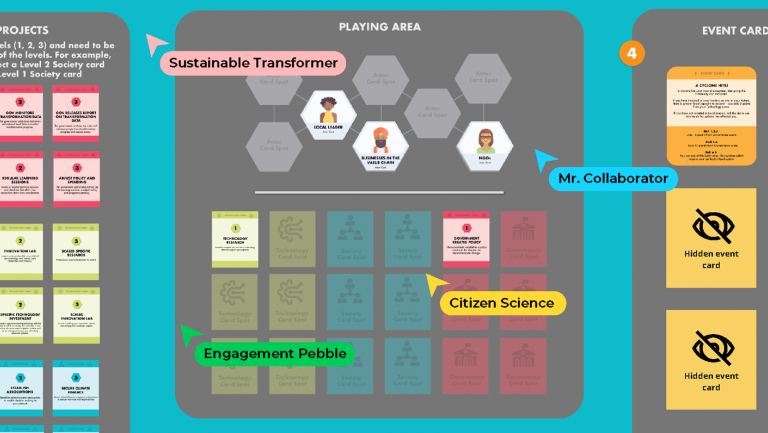Sign up for our monthly newsletter

Nine big takeaways from Australia's Aged Care Royal Commission
“The Royal Commission has heard compelling evidence that the system designed to care for older Australians is woefully inadequate. Many people receiving aged care services have their basic human rights denied. Their dignity is not respected and their identity is ignored. It most certainly is not a full life. It is a shocking tale of neglect.”
These are words that might shame us all.
As citizens. As humans who care about their fellow Australians. As relatives and friends of those currently consigned to live or work within the system described above. They might shame us... but what if they instead spurred us to collectively and collaboratively make sure these abuses – and the system that birthed them – never happen again?
Before we can tackle any problem, we must first understand it. The Interim report of the Royal Commission into Aged Care Quality and Safety is an important document for a critical moment in our history. It makes for sobering reading.
In just the first few of more than 800 pages, words like ‘isolation’, ‘powerless’, ‘failings’, ‘crisis’, ‘shocked’, ‘dismayed’ and ‘painful’ jump from the page, reinforcing for many of us the ever-present fear of growing old.
Make no mistake, this is an incredibly thorough and clear-eyed document. An extensive consultation process spanning written submissions, public hearings and community forums has outlined a litany of problems faced by those living and interacting with aged care.
Those attending community consultations were asked three primary questions:
- What are the current problems and challenges in aged care?
- What can be done to achieve high quality, safe and person centred aged care in to the future?
- How can we build a culture of dignity and respect for older people?
Responses to these questions in different pockets of the country produced recurring themes that dominate the report. Substandard care, lack of dignity and respect, disempowerment, staff issues including staffing levels, training, remuneration, general attitudes and lack of culturally safe care. They also repeatedly surfaced guardianship issues and misuse of enduring power of attorney as well as financial distress due to the cost of care.
Stories shared highlight procedural assessment processes, lack of choice and fears that funding levels are defining human ‘value’. We’ve heard many of these horrific tales recounted in the media since the royal commission began.
At ThinkPlace we carry out extensive work in the aged-care sector, both researching problem spaces with users and working with stakeholders to craft better services, interactions and experiences. We recently convened a major symposium for leaders and stakeholders across aged-care to begin the process of reimagining what a future system might look like.
Here are our nine big takeaways from the Royal Commission’s interim report.
1. WE'RE STARTING AT THE WRONG POINT
Drill deep and at the core of even the most complex system is a fundamental idea about what it does and why it is needed. The report, and the submissions that fed into it, reveal just how miscalibrated our ideas about ageing and aged care have become.
As we journey through lives that last increasingly longer it appears that older people are largely viewed as burdens on a system that does not care. The failure to value older people accurately or appropriately has led to enormous failure in delivering important services. The report strongly states “this cruel and harmful system must be changed”.
The Commission’s report outlines issues in our language and perception about older people. “(T)he language of public discourse is not respectful towards older people,” it says. “Rather, it is about burden, encumbrance, obligation and whether taxpayers can afford to pay for the dependence of the older”.
This ‘ageist mindset’ is a constant backdrop that stems from lack of value and respect and leads to poor outcomes for all. It magnifies the intense emotional experiences that people transitioning into aged care go through, together with the guilt and loss felt by family and friends, who must make and implement difficult decisions without adequate humane support.
2. WE'VE FORGOTTEN HOW TO FRAME AGEING POSITIVELY
We have learned, over time, to behave in this way but there are alternatives. In many nations and cultures ageing is seen as the growth of wisdom and intellect. Families look towards their elders as powerful sources of knowledge, tradition and decision making.
Our own Indigenous culture has many beautiful traditions that are founded on respect, care and dignity and hold space for people ageing and dying with a deep connection to people and place.
How do we bring this back into our culture and systems? How might we change the way we view ageing, the way we view pursuing aged care as a profession, and in doing so change how we feel about the prospect of entering aged care ourselves?
What are the ways we can adjust our viewpoints to allow for new ways of caring for our ageing country? The report highlights the need to be “respectful of ageing.” This focus is the start of the answers to these questions.

3. THE SYSTEM IS NOT HUMAN-CENTERED
The Commission has called out issues with the lack of follow-up throughout the system, starting with when people attempt to enter the aged care system through My Aged Care.
In response to the complaints about a confusing and flawed Aged Care system that hosted multiple entry points ‘My Aged Care’ was created. And while it fixed one issue and created a single entry point into aged care, there are now new issues emerging for a non-digitally literate population who find the system difficult to access and incredibly confusing.
The current approach is not human-centred. It does not adequately consider who is accessing, interacting and struggling with the system. It requires stressed and suffering people to tell their story over and over again.
Many people have told us that the complaints system is hard to access, slow to act and often effectively unresponsive to the concerns of the complainant - Interim Report
This weakness is not new. So many government systems highlight this common complaint. Even before entering what is for many an unpleasant, fearful environment there is an administrative nightmare of repetitive paperwork, overlapping agencies and confusing requirements.
For a life event that is both so common and so important, we can and should be able to handle this better as a society. Figuring out how to do this and using contemporary methods of co-design and service design to get there will need to be a future focus.
Issues are also outlined around the need for more people-centred services that are culturally safe, built around trusted relationships and trauma-informed for Aboriginal and Torres Strait Islander people.
4. THE SYSTEM WON'T FIX ITSELF WITHOUT HELP
The report also outlines the lack of effective response from the aged care sector. Issues include a lack of transparency, an ineffectual regulation system and a lack of people-centred approaches designed and delivered.
It’s clear that there is need for external intervention. While changes to regulation and oversight may be necessary in some instances we needn’t see this as being solely about forcing actors within the system into reluctant compliance.
A contemporary, responsive approach to regulation that is fit for purpose and focuses on capacity building through proper education and communication, rather than inadequate punitive measures, is what’s needed. By bringing new approaches and ideas to bear on this sector we can begin to build something that creates mutual benefit for all within it.
5. A BETTER SYSTEM FOR WORKERS AND CARERS MEANS A BETTER SYSTEM FOR OLDER AUSTRALIANS
The same blockers that create poor experiences for aged-care residents and system users have also resulted in increasing workplace pressures for people working within the sector.
The report makes clear that it is becoming harder to attract people with the right skills to work in the system due to poor conditions, lack of adequate education, training and innovation.
The 2016 Workforce Census and Survey supports this, indicating that skill shortages and difficulties filling positions are common, particularly in regional and remote areas.
“According to research conducted for the Aged Care Workforce Strategy Taskforce in 2018, only 53 per cent of aged care worker participants reported favourable enablement levels, well below industry benchmarks. This is largely driven by dissatisfaction with learning and development opportunities.”
As a nation, we have the skills and tools to fix these issues, if we can form the shared intent. It is time for a complete overhaul.

6. BETTER AGED CARE IS A RIGHT, NOT A PRIVILEGE
The report rightly points out that since the Government funds 80 per cent of the sector, Australian taxpayers have a right to expect a better system for their parents, grandparents and themselves to one day enter into with joy, rather than fear. Together we can demand better and we can expect to play a part in helping drive towards a better system.
7. FIXING THE AGED CARE SYSTEM IMPACTS OTHER COMPLEX SYSTEMS
While it certainly focuses upon the dysfunction of the current aged care system the report also concerns itself with how these shortcomings impact on other interconnected systems, such as hospitals, NDIS and palliative care.
Young people with a disability in aged care is one of the main problem areas that the report highlights as a failure of related systems that puts extra pressure on the aged care system.
There are numerous submissions outlining the lack of expertise in palliative care and the distress this causes to everyone involved.
“At the Broome Hearing, the Chief Executive Officer of the Royal Flying Doctors Service, Dr Martin Laverty, stated that: ‘Primary care and aged care are interdependent, they are reliant on each other’,” the report says. The Commission is highlighting the need for closer collaboration and more multidisciplinary teams across sectors to enable better outcomes.
It is clear that although work needs to be done within the sector, serious attention needs to be given to the interconnection to other sectors if real change is to be achieved. That means any solutions need to be co-designed with input from those overlapping systems – as well as with a diverse collection of voices from within the aged-care system itself.
The exciting thing here is that interconnectedness can be a multiplier of wickedness, but also of virtue. Building and adapting the future aged-care system can result in improvements that increase effectiveness, efficiency and basic human decency in interconnected systems and sectors.

8. WE NEED BOTH RAPID RESPONSE AND A SYSTEM TRANSFORMATION
Most of the analysis so far has focused on why we need system level reform and how we might go about beginning it.
But even though the interim report’s intent is not to outline recommendations, there are three key areas that the Commission says require called urgent action.
• to provide more Home Care Packages to reduce the waiting list for higher level care at home
• to respond to the significant over-reliance on chemical restraint in aged care, including through the seventh Community Pharmacy Agreement
• to stop the flow of younger people with disability going into aged care and expedite the process of getting those younger people who are already in aged care out.
These are all extremely important but should not and will not be the full scope of necessary change. In response to the report we can and must address these urgent issues immediately, while also beginning the larger project of sector-wide reform.
9. THIS IS A UNIQUE OPPORTUNITY. LET'S TAKE IT
While the temptation is strong to hang our heads as this report details the injustices, neglect and abuse of our older people, it also gives us a unique and powerful chance to rise. This report has not held back, and as changemakers, crafters of systemic interventions and stakeholders with various kinds of equity in the existing system neither should we.
Calls for co-design, innovation, transparency, meaningful change, restoration of dignity and love are the beginning of a journey Australians must make together. There is reason for hope in this document and in the thorough and unflinching manner with which the commission has confronted its work.
There are so many opportunities for us to do better but this report also contains markers of where that improvement might stem from. Throughout its catalogue of injustices and failings we also see many instances of unwavering dedication, love, support and advocacy for loved ones.
Now is our chance to put forth as much love as we have seen neglect, as much care as we have seen mistreatment and to work together to design and build a system that does not leave us fearing our inevitable journey towards old age.
It is the start of a road towards kindness.






